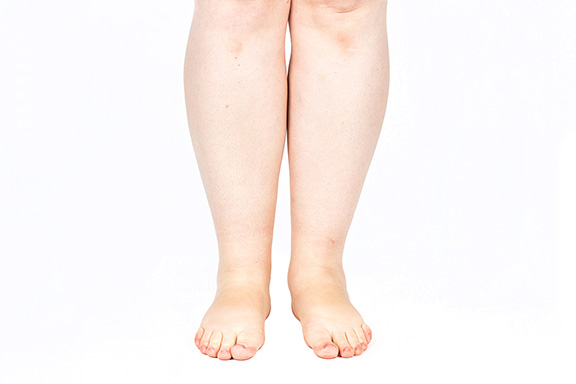
By Alexander Germanis
Transportation and logistics make up a major part of most nations’ infrastructures. Whether during times of war or peace, the ability to transport goods and people is paramount to saving or maintaining a civilization.
What happens when part of that system breaks down or simply gets a little clogged? Anyone who has been stuck on the freeway because of an overturned semi truck knows there is usually nothing to do but to wait for the mess to be cleared.
The human body can have similar traffic jams in the lymphatic system and, just like on the road, when the jams occur, the result is not a pleasant one.
Registered Occupational Therapist Julia Rodrick, OTR/L, CLT-LANA, WCC, is an expert in treating problems of the lymphatic system, namely lymphedema.
The lymphatic system makes up a part of the greater immune system, and, like the trucks and trains of a logistical system, it is responsible for trafficking. “It is the process whereby infection-fighting cells can be mobilized to the tissues that require assistance,” says Julia. “In recent years, research has found that the lymphatic system plays a role in AIDS, diabetes, heart disease, rheumatoid arthritis, lupus, and cancer metastasis.”
When the lymphatic system is compromised, Julia adds, the area of the body in which the fault occurs is prone to recurrent infection. This fault can occur as a result of surgery, trauma, or improper development.
The infection can then lead to lymphedema. “A chronic condition,” explains Julia, “lymphedema results from the abnormal accumulation of protein-rich interstitial fluid, which can lead to persistent inflammation and fibrosis of the affected anatomy.”
Anyone who has had a tourniquet applied to an arm or leg or simply trapped the blood flow to a finger will have a simplified idea of what minor inflammation in an extremity can feel like.
Lymph, interstitial fluid in the body, is the carrier of antibodies to different sites in the body. Through a malfunction, removal, or scarring of a lymph node or other lymphatic vessels, the lymph can begin to pool in the affected area. As it is an interstitial fluid and not yet in the blood stream, it pools in surrounding tissue and has no way out except through direct drainage of the fluid from the body.
“Lymphedema presents most commonly in the arm or leg,” says Julia, “but it also may occur in other parts of the body including the breast or trunk, head and neck, or genitals. I’ve also treated the face, ears, and the tongue. Because the lymphatic system is a network of vessels, node clusters, and tissue, lymphedema can develop anatomically.”
Lymphedema presents itself in two main categories: primary and secondary. Primary lymphedema is a congenital or hereditary form of the condition due to either a deformity of a lymph node, an aplastic lymph node — one that never formed fully or at all — or both. “Primary lymphedema can present at birth, shortly after, or it can manifest around puberty,” Julia points out. The most common form is called lymphedema praecox and tends to manifest mainly in the lower extremities of pubescent girls.
“Lymphedema tarda presents after the age of 35,” Julia adds. “Most primary lymphedemas are female dominant, but there are some syndromes that affect males.”
“Secondary lymphedema is when a previously intact lymphatic system becomes damaged due to trauma, infection, illness, radiation, or surgery,” she continues. “There is also a sub-category of secondary lymphedema related to vascular diseases and obesity.”
Fortunately, just as with the clogged roads we sometimes travel, Central Illinois Institute of Balance now offers a Lymphedema Treatment Program to “clear the road” so we can get back to moving along like normal once again.
To learn more about lymphedema, how it is recognized, diagnosed, and treated, read the next part of “Treating Lymphedema” in future issues of Healthy Cells.
For more information on their Lymphedema Treatment program or any type of balance or dizziness problem, you may contact Poonam McAllister at Central Illinois Institute of Balance, 309-663-4900, www.dizzyil.com. Their office is located at 211 Landmark Dr, Suite E-3 in Normal.

